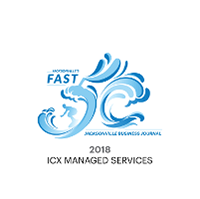Understanding HIPPA Technology Compliance
While the Health Insurance Portability and Accountability Act (HIPAA) is commonly associated with healthcare, its technology compliance guidelines offer valuable data protection practices that apply to all industries handling sensitive information. At Level 10 Solutions, we help businesses across sectors secure their data through a HIPAA-informed approach, ensuring that companies meet both industry-specific regulations and broader security standards.
Why HIPAA Compliance Matters Beyond Healthcare
HIPAA’s primary focus is to protect patient health information, but its core principles—data confidentiality, integrity, and availability—are essential for any business that handles sensitive data. Whether you’re managing personal, financial, or business-critical information, the need to prevent unauthorized access, data loss, or cyberattacks is universal.
From retail and finance to legal and technology firms, businesses today must adopt robust security protocols to safeguard data and comply with evolving regulations. By embracing HIPAA technology compliance practices, your company can mitigate risk and ensure long-term data security.
HIPAA’s Key Compliance Standards: A Framework for All Businesses
HIPAA’s Security Rule outlines a series of administrative, physical, and technical safeguards to protect sensitive information. While originally intended for healthcare, these security measures provide a strong framework for any business:
Administrative Safeguards
These safeguards focus on policy and procedure development to guide your workforce in protecting sensitive information. This includes:
- Risk Assessments: Conducting regular risk analyses helps identify and address vulnerabilities in your IT systems.
- Employee Training: All employees must be trained on data protection policies, ensuring they understand how to handle sensitive information securely.
- Security Management: Designating a security officer and establishing incident response plans ensures that someone is responsible for overseeing data security and responding to breaches effectively.
Physical Safeguards
Physical security is crucial for protecting the infrastructure that stores and processes sensitive data. Businesses should:
- Secure Facilities: Limit access to areas where sensitive data is stored, such as server rooms or data centers, to prevent unauthorized physical access.
- Device Security: Implement policies for securing laptops, mobile devices, and other equipment, especially for remote work environments.
Technical Safeguards
Technical safeguards are the IT controls that protect sensitive data from being accessed or altered by unauthorized users. These include:
- Access Control: Ensure only authorized personnel can access sensitive data by using role-based access controls and multi-factor authentication.
- Encryption: Encrypting data both at rest and in transit is critical to protect sensitive information, especially when using cloud services or transmitting data over networks.
- Audit Controls: Implement auditing tools that monitor who accesses sensitive data and when, helping to identify potential breaches or improper access.
- Integrity Controls: Ensure that data remains accurate and unchanged, preventing unauthorized alterations.
Non-Compliance Risks: More Than Just Healthcare
HIPAA compliance isn’t just about healthcare penalties—non-compliance with any data protection standards can lead to severe consequences for businesses across all industries.
- Financial Penalties: Data breaches often result in heavy fines from regulatory bodies, legal fees, and compensation for affected customers.
- Reputation Damage: Trust is hard to regain once it’s lost. A major data breach can cause customers to lose confidence in your ability to protect their information, impacting future business.
- Operational Disruption: A data breach or security incident can disrupt operations, leading to downtime, lost revenue, and a lengthy recovery process.
Industries That Can Benefit from HIPAA-Informed Compliance
While HIPAA compliance is critical for healthcare, the best practices outlined by the Security Rule can benefit other industries as well:
- Financial Services: Banks, credit unions, and insurance companies manage vast amounts of sensitive customer information. Data encryption, access control, and regular audits are essential for protecting these assets.
- Legal Firms: Law firms handle confidential client information, making data protection essential for maintaining trust and avoiding liability.
- Retail and E-Commerce: Companies in retail and online sales handle large volumes of personal and financial data. HIPAA-like safeguards help protect consumer information, build trust, and ensure secure transactions.
- Technology and Software Providers: Businesses developing applications or platforms that handle sensitive data must prioritize security to comply with regulations like GDPR and CCPA while also preventing breaches.
Level 10 Solutions: Your Partner in HIPAA-Informed Compliance
At Level 10 Solutions, we specialize in developing customized IT solutions to help businesses meet data security standards across industries. Our services include:
- Risk Assessments: We conduct thorough risk assessments to identify potential vulnerabilities and recommend the best strategies to mitigate risks in your technology infrastructure.
- Technical Safeguards: From encryption to access control, we implement cutting-edge solutions to protect sensitive data, whether it’s patient records, financial data, or proprietary business information.
- Ongoing Monitoring: We provide continuous monitoring to detect and respond to potential threats in real-time, ensuring that your sensitive data remains secure.
- Workforce Training: We offer tailored training programs that ensure your employees understand the importance of data protection and are prepared to respond to potential threats.
Every business—regardless of industry—must prioritize data security to protect sensitive information and maintain customer trust. HIPAA technology compliance offers a valuable framework for building a secure IT environment that safeguards sensitive data, reduces risk, and ensures regulatory compliance.
Level 10 Solutions, formerly ICX Managed Services, was founded in 2010 to provide strategic technology leadership and enterprise-level support to small and mid-enterprise organizations in Jacksonville, FL and beyond.
We help our clients improve organizational and individual efficiencies by leveraging a well-managed IT infrastructure, backed by enterprise-level tools and automation, along with expert support and advice from trained professionals. Level 10 Solutions currently supports thousands of users with clients representing the following industries: Finance, Insurance, Legal, Healthcare, Manufacturing, Non-Profit, Faith-based organizations, and Hospitality.















